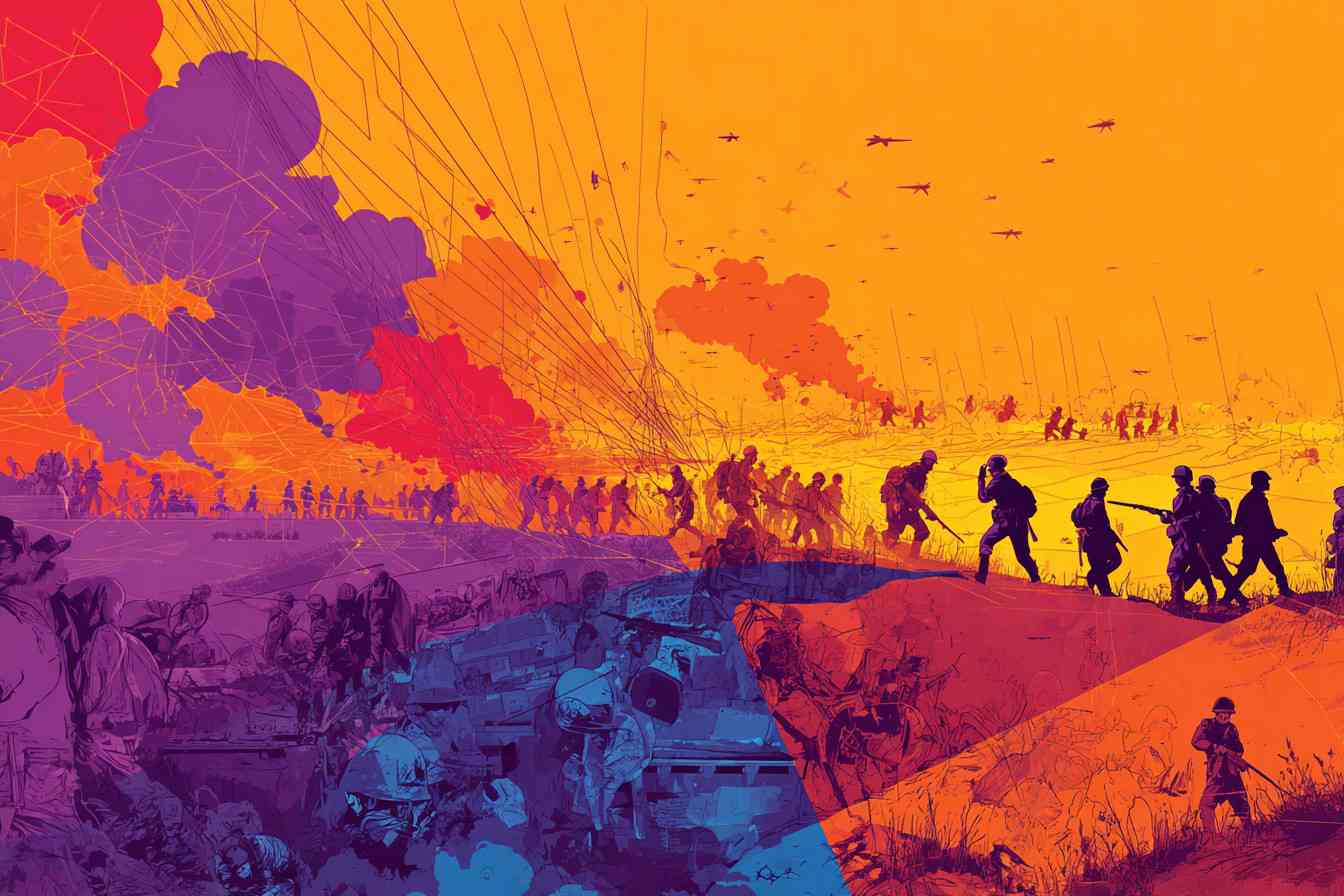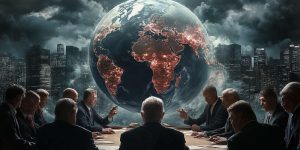Gaza and the world: why some conflicts receive all the attention while others are forgotten

The modern world is flooded with images, numbers, and narratives of conflict. Yet what stands out is how selective global attention truly is. The number of deaths in Gaza, often described in the tens or even hundreds of thousands, dominates headlines and television screens. Other conflicts, in which hundreds of thousands or even millions of people have died, receive only a fraction of that attention. This inequality in how suffering is perceived and presented reveals much about political interests, media mechanisms, and the way empathy is directed.
This piece compares the claimed death tolls in Gaza with other recent and historical conflicts, including Syria, Ukraine, Yemen, Nigeria, and Sudan. The point is not to dispute figures, but to show how numbers and perceptions are deployed. The central question: why does Gaza receive disproportionate attention, while elsewhere millions die largely unnoticed?
The Gaza narrative in numbers
Since the escalation of the conflict in Gaza, casualty figures have been reported almost daily. These numbers, often provided by health authorities in Gaza and repeated by international media, range from tens of thousands to hundreds of thousands. Although the reliability of such claims is frequently questioned, their dominance in the global public sphere is undeniable.
Images of destroyed buildings and wounded children reinforce the sense of urgency. Major international media frequently present Gaza as the central moral crisis of the world. Demonstrations, resolutions, and campaigns multiply after each new report of casualties.
But once the gaze is widened to other regions, it becomes clear that Gaza is not unique in terms of human loss.
Syria: a forgotten bloodbath
The Syrian civil war began in 2011 and continues with varying intensity. According to UN estimates, more than 500, 000 people have been killed (Syrian Conflict: Ten Years of Carnage, United Nations). Entire cities such as Aleppo and Homs were reduced to rubble, and millions were displaced. Yet after the first few years, Syria faded from front-page coverage, especially after the defeat of the Islamic State.
The scale of destruction and death in Syria dwarfs the claims from Gaza. Still, the sustained wave of outrage and constant media spotlight that Gaza receives never materialized for Syria. To much of the outside world, Syria became a “closed chapter, ” despite ongoing violence.
Ukraine: geopolitically vital, but quickly tiring
The war in Ukraine, which began with the Russian invasion in February 2022, has taken tens of thousands to perhaps hundreds of thousands of lives (The Human Cost of the War in Ukraine, BBC). Both soldiers and civilians are counted among the dead. While the war initially dominated the global press, its coverage intensity has since declined.
Remarkably, the war in Ukraine directly affects European security, energy, and geopolitics. Yet it does not trigger the same continuous wave of moral outrage as Gaza. Demonstrations exist, but they are more political or strategic in nature than morally driven. Gaza seems to mobilize more people in protest than a war that directly touches Europe.
Yemen: the silent catastrophe
The war in Yemen, which escalated in 2014, has often been described as the world’s worst humanitarian crisis (Yemen: The Forgotten War, International Rescue Committee). Tens of thousands have died in fighting, but even more perished due to hunger and disease, consequences of the blockade and destroyed infrastructure. UN estimates suggest that over 370, 000 people have died directly and indirectly (Yemen: Humanitarian Catastrophe, United Nations).
Yet Yemen receives little Western media coverage. The conflict is complex, with multiple regional powers (Saudi Arabia, Iran, local militias) involved, making it harder to frame as a simple story of good versus evil. Gaza, by contrast, is framed as a binary struggle, making it easier to fit into media narratives.
Nigeria: mass death outside the spotlight
Nigeria provides one of the starkest examples of ignored suffering. Since 2009, the country has faced relentless violence from Boko Haram and other militant groups. According to estimates, over 350, 000 people have died (Nigeria Conflict Monitor, Council on Foreign Relations). Civilians in rural areas are frequent targets of massacres, kidnappings, and starvation.
Unlike Gaza, Nigeria rarely makes Western headlines. There are few international protests or solidarity campaigns. The suffering of hundreds of thousands of Nigerians seems absent from the global moral consciousness.
This gap highlights how empathy is selectively deployed. Nigeria is less strategically important for Western capitals, and without daily imagery of the violence, its tragedy remains invisible.
Sudan: a contemporary disaster
In 2023, conflict erupted in Sudan between the army and paramilitary groups. UN reports suggest tens of thousands of deaths and millions displaced (Sudan: A Forgotten Crisis, United Nations). The violence threatens to trigger one of the largest refugee crises of the century.
Yet international protests are virtually nonexistent. Sudan is seen as peripheral, while Gaza is viewed as central to global moral discourse. Once again, selective outrage is clear.
Why Gaza dominates attention
Why does Gaza, with casualty numbers neither unique in history nor in today’s world, capture so much focus? Several factors stand out:
Political symbolism
The conflict in Gaza fits within broader geopolitical narratives. For many, it symbolizes tensions between the West and the Arab world, Israel and its enemies, imperialism and resistance. Every reported death becomes proof of a larger struggle.
The power of images
Gaza is exceptionally visible. Its small territory, dense population, and access to modern communications ensure that images quickly reach global media. In Nigeria or Sudan, where few journalists operate, suffering remains unseen.
Where there are no cameras, there appears to be no tragedy.
A simple story
Many conflicts are messy, with multiple factions. Gaza, by contrast, is presented in binary terms: Israel versus the Palestinians. This simplicity makes it easier for activists, media, and politicians to take sides. Yemen or Nigeria lack this clarity, so they are largely ignored.
Activist infrastructure
Powerful global networks of activists and organizations focus specifically on Gaza and Palestine. Demonstrations, lobbying, and campaigns ensure constant attention. No comparable networks exist for Yemen, Nigeria, or Sudan.
The consequences of selective empathy
Disproportionate attention to Gaza has several consequences. First, it distorts global perception of suffering. It suggests some lives matter more because they are seen and amplified, while others remain invisible.
Second, it shapes policy. Politicians feel compelled to respond to Gaza, while neglecting other crises. Aid, diplomacy, and interventions follow visibility, not severity.
Third, it narrows international solidarity. Millions in Nigeria, Yemen, or Sudan receive little help, because their pain is not politicized.
The history of selective attention
This pattern is longstanding. In Rwanda in 1994, over 800, 000 people were massacred (Leave None to Tell the Story, Human Rights Watch). The global community barely responded. By contrast, in Kosovo in 1999, with tens of thousands of casualties, NATO intervened amid intense media coverage.
The difference was not in numbers but in geopolitical and media interests. Gaza today fits this same pattern: the conflict is “important” because it symbolizes broader struggles, not because the death toll is unparalleled.
Final reflections: who gets a voice?
The casualties in Gaza are tragic, but they are not unique in scale. Syria, Ukraine, Yemen, Nigeria, and Sudan demonstrate that equal or greater suffering occurs elsewhere, often with even larger numbers. Yet only Gaza sustains the world’s moral outrage.
The lingering question is this: why is some suffering magnified while other populations die silently? The answer lies not in statistics, but in the way power, media, and politics decide who is granted a voice, and who fades into oblivion.


















